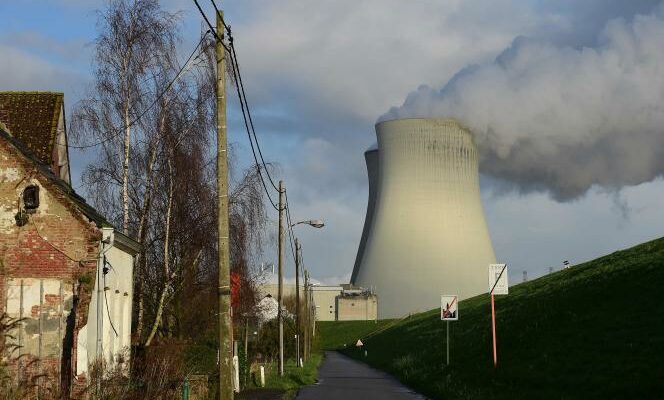Announced twenty years ago, postponed several times, the exit from nuclear power will not take place in Belgium. And it is an environmental minister, Tinne Van der Straeten, who, associated with the Flemish liberal prime minister, Alexander De Croo, will finally have negotiated with Engie-Electrabel, the operator of the Belgian park, the extension of two power stations.
Monday, January 9, after several months of very difficult discussions, the government and the French energy company agreed on the extension of the Doel 4 (Flanders) and Tihange 3 (Wallonia) reactors, the most recent in the country, for a period of ten years. Engie, which had abundantly underlined the difficulty, even the impossibility, of such an operation, now has four years to adapt the two units by November 2026.
A date which immediately raised questions: experts had pointed out that there was a risk of a lack of supply in the country for the winter of 2025-2026, with a possible deficit of some 1,000 megawatts. Before their upgrade, the two units will be shut down in 2025. And it is undoubtedly another government that will have to avoid a possible blackout, the lease of Mr. De Croo at the head of the government having to end at the end of mid-2024.
Cost sharing
“We are taking back our security of supply” affirms, in any case, the head of government, forced to take up an energy file that all his predecessors had carefully neglected. For two decades, all the formations in power had in fact resolved to accept the demands of the Greens, without preparing real alternatives to the abandonment of nuclear power.
This time, the Belgian State and Engie have created a common legal structure, which will be responsible for the management of the two reactors, the life of which will be extended. Investments, risks and benefits will thus be shared, without it being specified at this stage whether the electricity produced will benefit from a guaranteed price. Engie will remain the operator, but the Belgian State should now participate in strategic decisions.
“It’s a complex agreement, but it’s unheard of”estimated Mme Van der Straeten, forced for her part to renounce the doctrine of Groen, the Flemish environmentalist party, to negotiate with the French group. He approached the negotiations from a position of strength: first indicating his refusal of an extension, he was able to put on the table the question of sharing the costs for the dismantling of the five other reactors, supposed to be dismantled in 2025, and for the management of waste and spent fuel. Engie obtained, in exchange for the promise of ” do everything “ to relaunch the two units within the planned timeframe, an estimate of the cost of this “nuclear liability”.
You have 33.12% of this article left to read. The following is for subscribers only.
